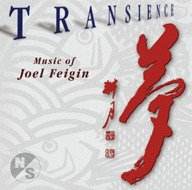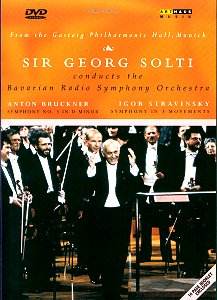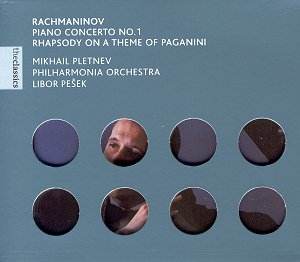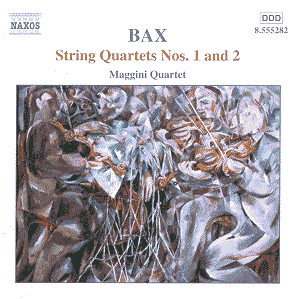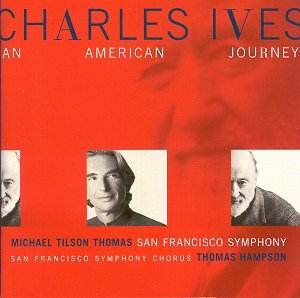 Composer: Charles Ives
Composer: Charles Ives
Works: From the Steeples and the Mountains, The Things Our Fathers Loved, The Pond (Remembrance), Memories, Charlie Rutlage, The Circus Band, Three Places in New England, In Flanders Fields, They Are There, Tom Sails Away, Fugue from Symphony No. 4, Psalm 100, Serenity, General William Booth Enters into Heaven, The Unanswered Question
Performers: Thomas Hampson (baritone), San Francisco Symphony Orchestra and Chorus conducted by Michael Tilson Thomas
Recording: Live at the Davis Symphony Hall, San Francisco, September and October 1999
Label: RCA-BMG 09026 63703-2
Charles Ives, often hailed as America’s first great composer, occupies a unique place in the pantheon of classical music. His works, steeped in the nostalgia of his New England upbringing, reflect a complex interplay of memory, identity, and the American experience. The album “Ives – An American Journey,” under the baton of Michael Tilson Thomas, offers a compelling overview of Ives’s oeuvre, blending familiar masterpieces and less frequently heard gems into a coherent narrative that captures the essence of this innovative composer.
The performance is anchored by Ives’s most notable work, “Three Places in New England.” Here, the San Francisco Symphony Orchestra, conducted with a deft touch by Tilson Thomas, brings forth the intricate layers of Ives’s musical language. The piece’s climactic moments are expertly balanced with the ethereal textures of woodwinds and brass, showcasing the sonic depth of Ives’s orchestration. The inclusion of the chorus in the final section of “Three Places” enhances the emotional weight, allowing for a richer harmonic tapestry that contrasts beautifully with the orchestral fabric. This decision to utilize choral forces in lieu of a purely instrumental interpretation underscores Ives’s intent to evoke the collective memory of a community, resonating deeply with the listener.
Equally striking is the performance of “General William Booth Enters into Heaven.” Here, Thomas Hampson’s baritone soars with a commanding presence, though the recording’s engineering occasionally places him too prominently in the mix, overshadowing the intricate orchestral details—particularly the delicate woodwind writing during pivotal moments of the piece. Nonetheless, the chorus’s diction is commendable; their clarity cuts through the orchestral chaos, a testament to both their preparation and the conductor’s guidance. However, the tempo fluctuations, especially in the more animated sections, could benefit from greater steadiness to maintain the momentum that Ives so cleverly constructs.
The album also presents less familiar works, such as “Charlie Rutlage,” which exemplifies Ives’s characteristic blend of Americana and introspection. The song’s surprising harmonic shifts and rhythmic complexities are delivered with a delightful swagger, capturing the essence of a cowboy’s tale imbued with poignancy. The performance of “The Circus Band” is another highlight; its frenetic energy and intricate counterpoint come alive under Tilson Thomas’s baton, although the recording’s balance occasionally struggles with the overwhelming detail inherent in the score.
Recording quality is paramount in Ives’s music, which often demands a nuanced capture of its many layers and textures. The live setting at the Davis Symphony Hall provides a vibrant acoustic that enhances the orchestral interplay, though some moments reveal the challenges of balancing a large ensemble with solo voices. The engineering, while generally effective, does falter in moments where the orchestral texture becomes dense, leading to a loss of clarity in the intricate polyphony that characterizes Ives’s style.
When juxtaposed with other notable recordings, such as the Cleveland Orchestra’s rendition of “Three Places” or the Gulbenkian Orchestra’s interpretation of “The Unanswered Question,” this recording stands out for its vibrant energy and emotional immediacy. While alternative interpretations may offer different insights into Ives’s works, the unique combination of Tilson Thomas’s interpretative vision and the San Francisco Symphony’s robust sound creates a compelling argument for this collection as a definitive representation of Ives’s genius.
The journey through Ives’s musical landscape is both rewarding and enlightening. The eclecticism of his works, coupled with the evocative performances captured in this recording, reveals a composer whose voice is at once distinctly American and universally resonant. This album does not merely serve as an introduction to Ives; it is an invitation to delve deeper into the rich tapestry of his music, making it essential listening for both neophytes and seasoned aficionados alike.
